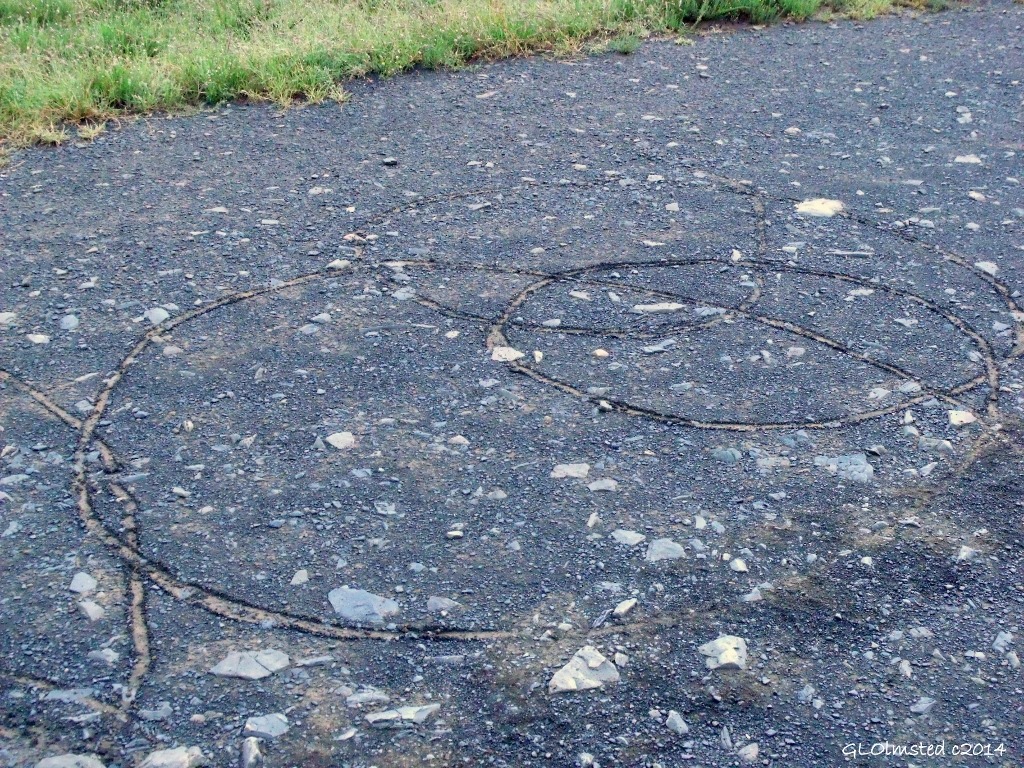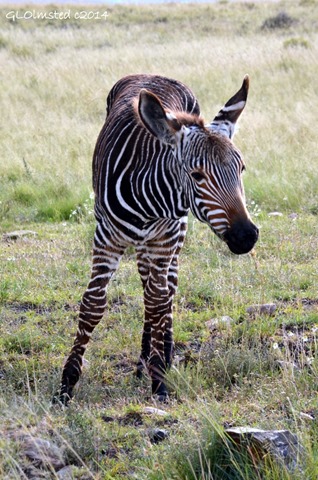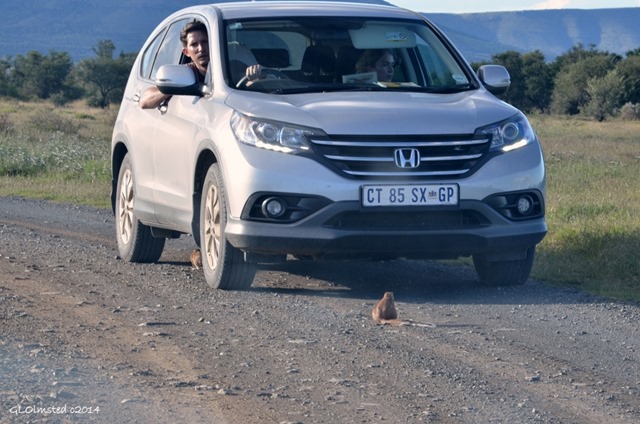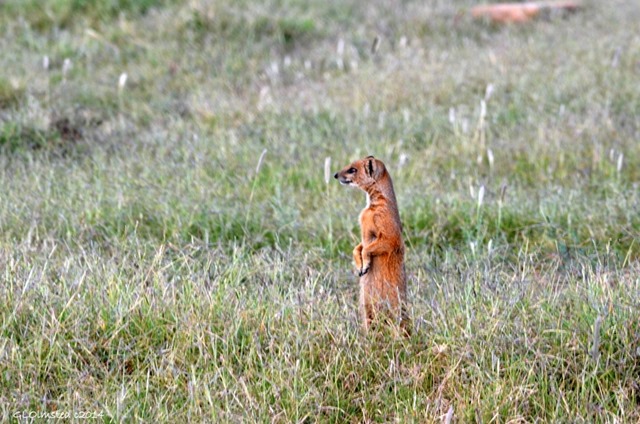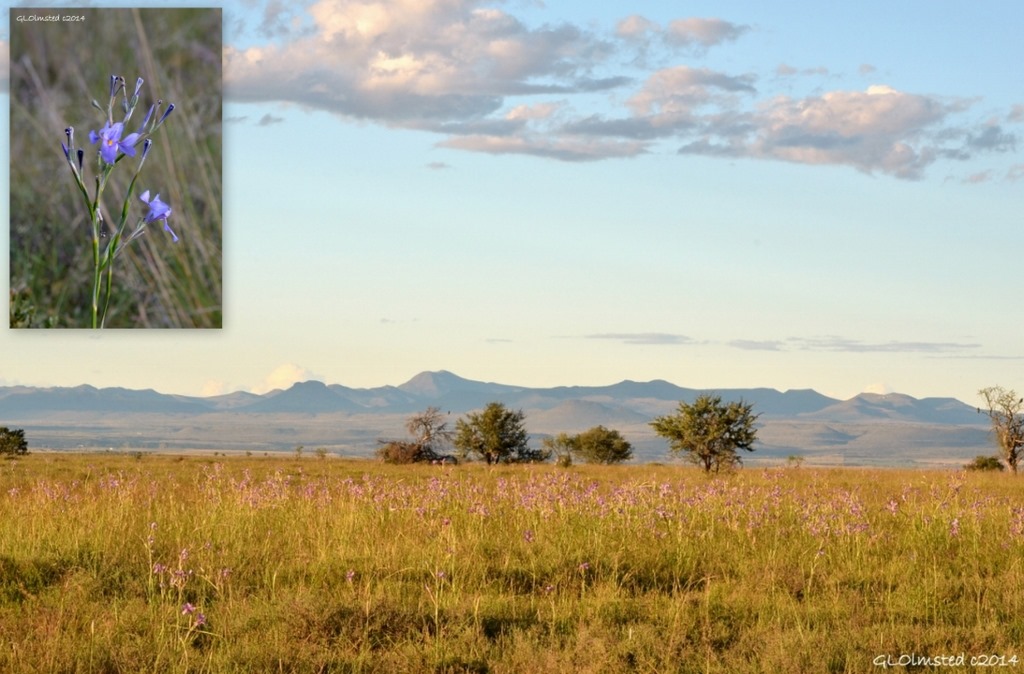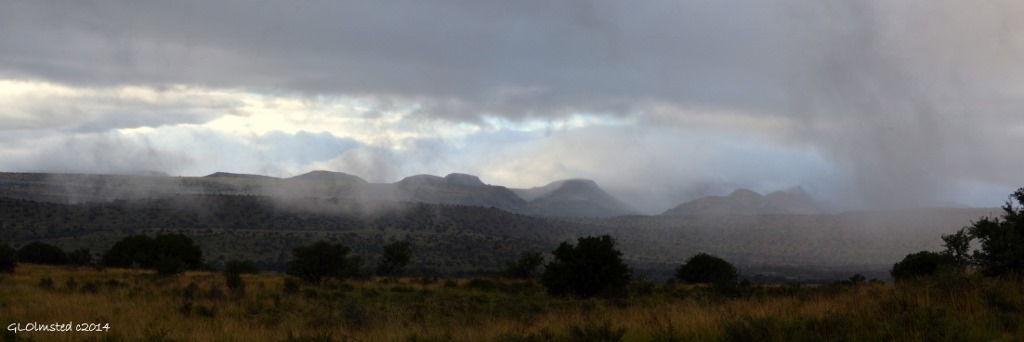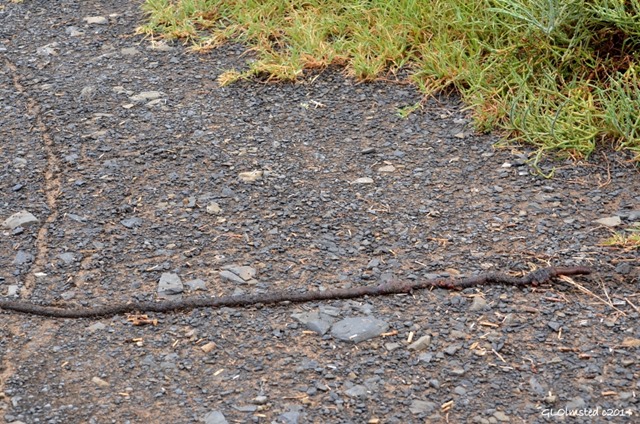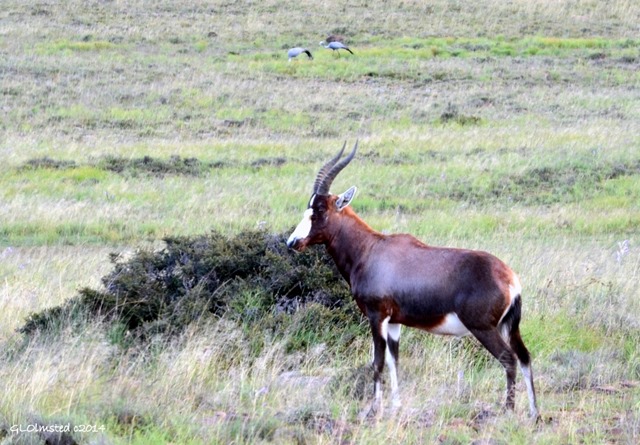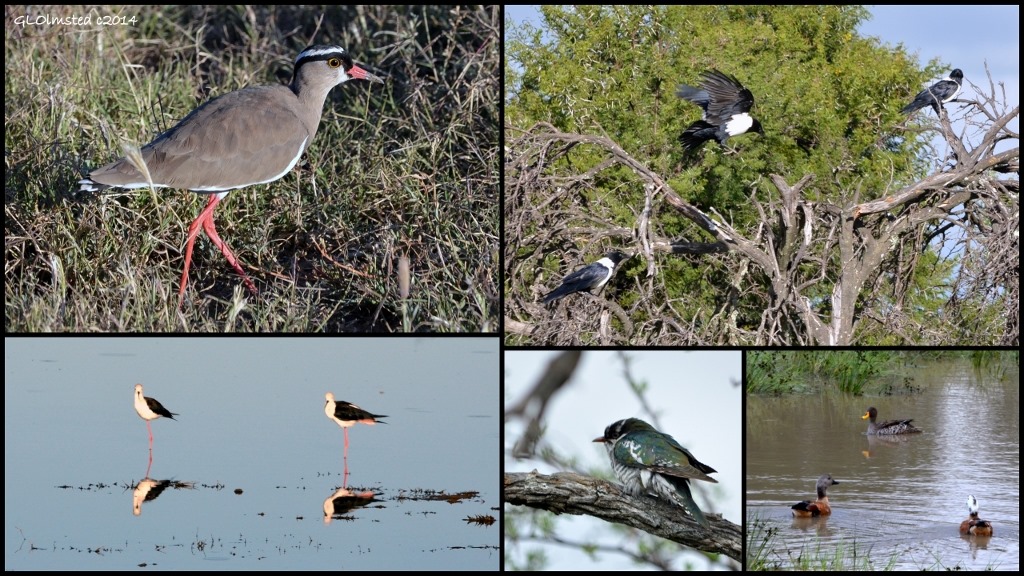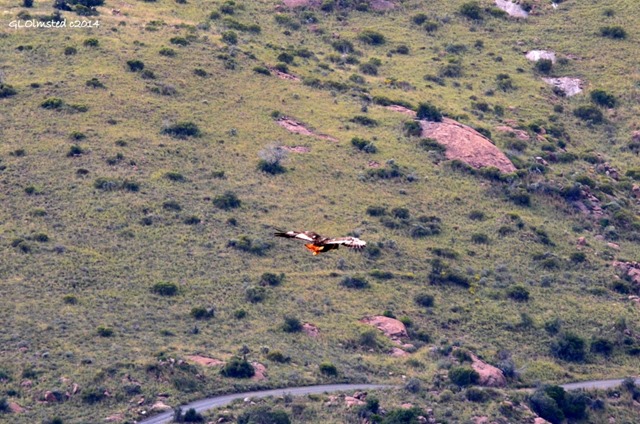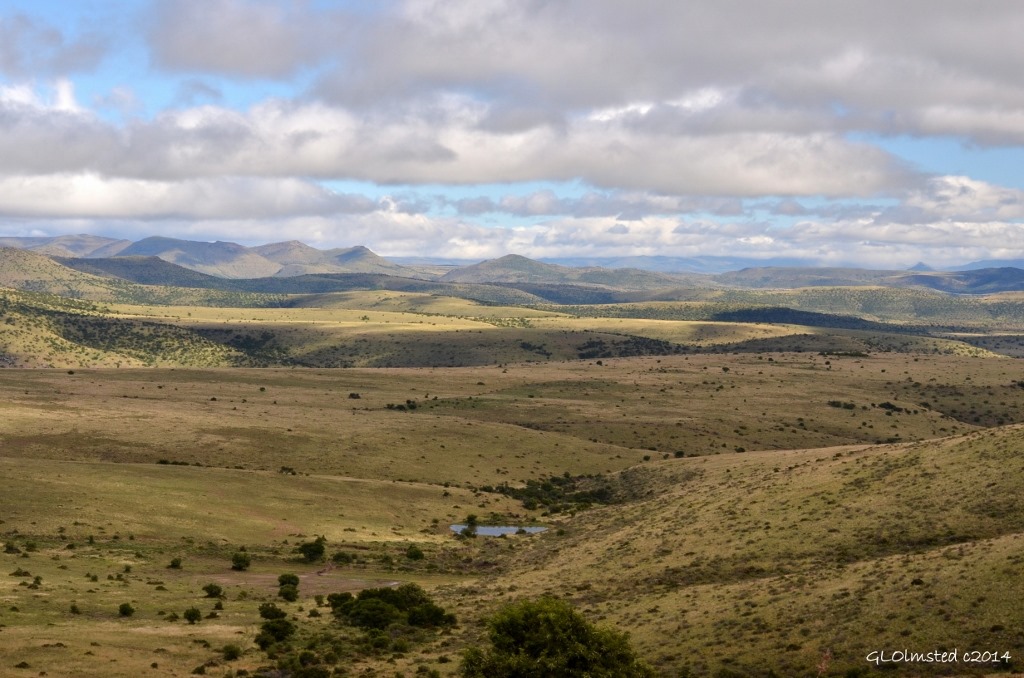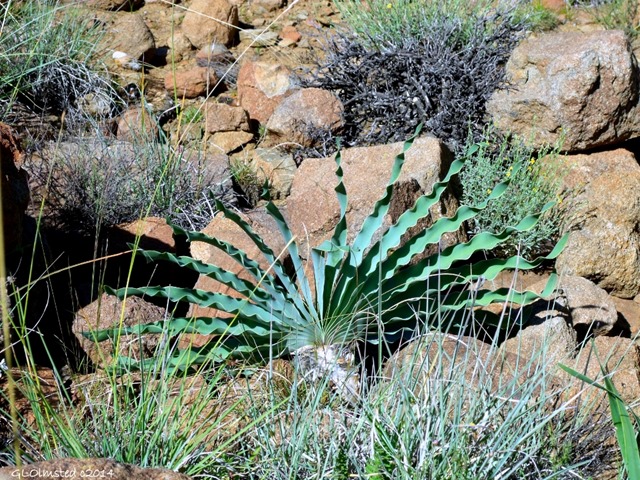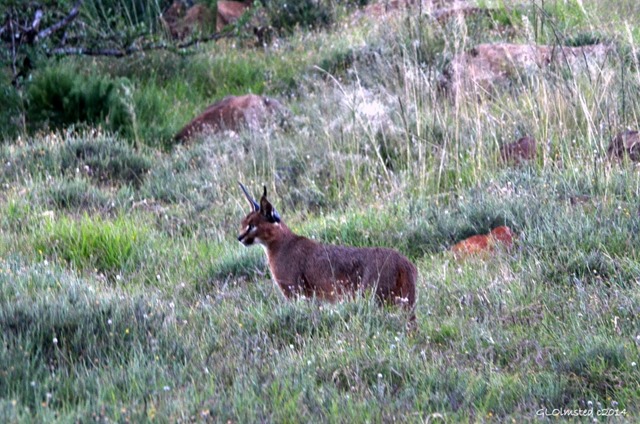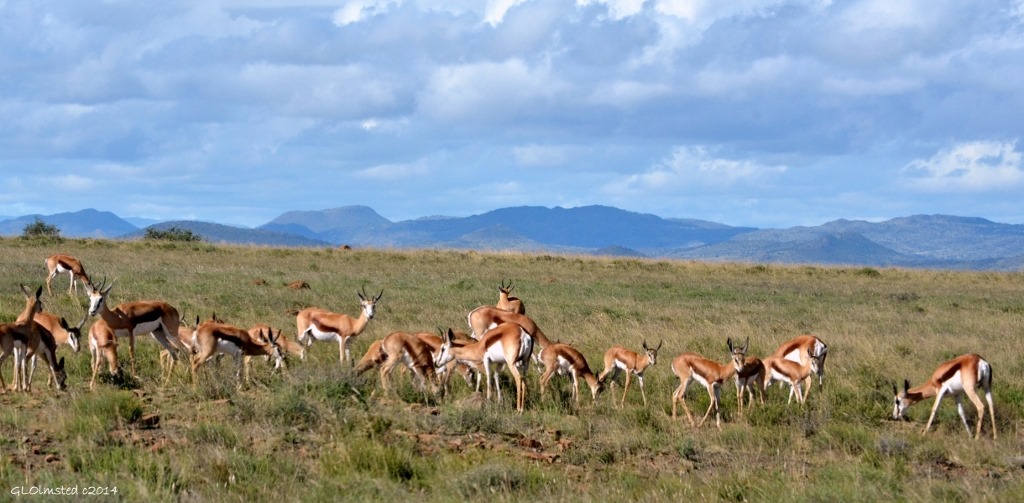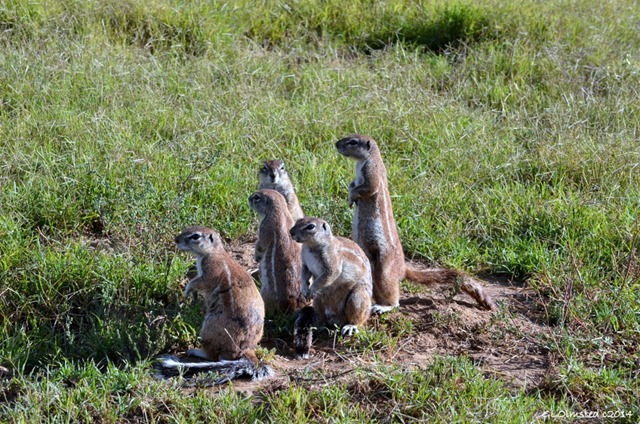We got up early as usual for a game drive and my eyes were barely open as I drank my coffee when Joan suddenly stops the truck and asks, “What the hell is that?” I’ve learned over our travels to look where she’s pointing and wondered what kind of aliens had left their mark on the road.
We pulled into Mountain Zebra National Park near Cradock before noon and set up camp for our six night stay. Later in the afternoon we went for a game drive. And of course we expected to see Mountain Zebras. Not to be confused with Burchell’s Zebras. In fact the park was established in 1937 as a conservation effort to save a small herd of endangered Cape mountain zebra. Later expansion made it possible to re-introduce black rhino, buffalo, cheetah, brown hyena and lion. None of which we saw.
Game drives are a slow affair while gazing back and forth in search of, well anything and everything.
Meerkat
Frequently I felt watched.
Karoo blue tulip
The landscape at Mountain Zebra deserves as much attention as the wildlife. The park preserves three biomes, the Nama-Karoo—semi desert, grassland and thicket.
It rained over night, what else is new. Seemed to rain, in the non-rainy season, everywhere we went. Yet this made the landscape lush, providing plenty of food to the grazers, and a bit of an obstacle for us to see animals hiding in the tall grass.
But our sighting of the unusual circles on the road occurred because the rain chased the mole snake that made them out of the burrow it tends to live in. They were everywhere. Unfortunately many had been run over. Really looked like a giant earthworm to me.
Over the next several days we did see larger wildlife in the distance dotting the grassy plains.
And also some a little closer like this blesbok named for the distinctive white blazed face and forehead coming from the Afrikaans name of bles/blaze . Notice in the background the blue cranes which are endangered and the national bird of South Africa.
Crowned lapwing, Pied crows, Yellowbilled duck & South African Shelducks, Diderick Cuckoo, and Black-winged Stilts
We saw a lot of birds.
And how I wish I could soar like this Jackal buzzard over the amazing landscape.

Yet I settled with the miles of wonderful roads, some paved and some gravel, plus there are 4×4 options we couldn’t drive.
Bonus was hiking the Black Eagle trail, 1.5 miles (2.5 km) up and over the rocks within the fenced camp area. So nice to be able to walk through this environment and get close to some of the interesting vegetation like this poison bulb that looks like a fancy fan.
Yet most exciting was my first sighting of a Caracal, unfortunately at dusk as we rushed back to the gate before closing time.
Accommodations and Services
Accommodations include grassy campsites with electricity and communal kitchen and restrooms, plus chalets and the restored historic Doornhoek House built in 1838 as one of the first permanent farmhouses in the area and declared a national monument in 1986.
Springbok
Other than self-drive game viewing on both paved and 4×4 roads the park offers guided drives and walks, self and guided hiking trails, and cheetah tracking with a guide (some of the cheetahs are collared). We saw a collared cheetah during last year’s visit and I wanted to go on this but no else signed up for a minimum of two people. The park also haw a conference room, restaurant, shop, picnic sites, and two swimming pools.
This was my second visit to Mountain Zebra National Park and I’ll return during any future visit because there’s so much more than zebras, which I’d never tire of seeing either.

